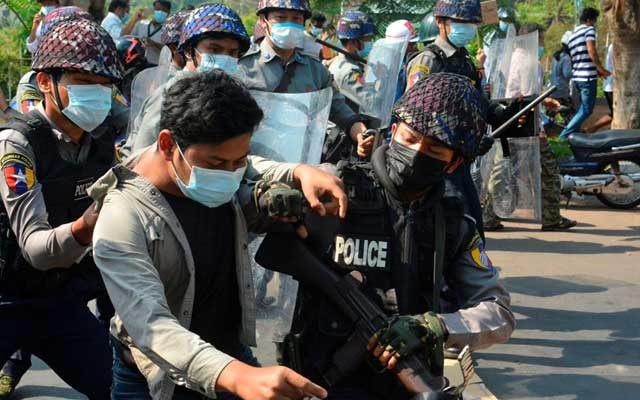Human Lives Human Rights: As Algeria prepares for its presidential elections set for September 7, government officials continue to intensify their suppression of civic freedoms, significantly undermining human rights such as freedom of expression, peaceful assembly, and association.
Over the past two years, the government has enacted a troubling series of legal changes and new laws that have severely impacted human rights, particularly highlighted by amendments to the penal code made in April 2024.
In recent years, Algeria has witnessed a gradual erosion of human rights, marked by the dissolution of political parties, civil society organizations, and independent media outlets. This deterioration has been accompanied by a marked increase in arbitrary arrests and prosecutions based on unfounded terrorism charges. This troubling trend has only intensified as the elections approach.
The Algerian government has further tightened its grip on civic space by implementing a range of flawed amendments to the penal code and introducing new legislation that poses serious threats to freedoms of expression, peaceful assembly, and association. This has reinforced the authorities’ aggressive stance against dissenting voices.
Human rights advocates are calling on the Algerian government to cease its repressive actions, release individuals detained solely for peacefully exercising their rights, and safeguard citizens’ rights to freedom of expression, peaceful assembly, and association.
In the past month alone, government actions against political opposition figures have escalated. On August 6, Yacine Mekireche, a member of the suspended Democratic and Social Movement (MDS), was arrested arbitrarily due to social media posts. Additionally, on August 20, at least 60 activists, primarily from the Rally for Culture and Democracy (RCD), were detained while attempting to commemorate the first congress of the National Liberation Front (FLN) in August 1956.
Restrictions have also been imposed on the rights to peaceful assembly and association, with arbitrary arrests and interrogation of civil society activists. On June 29, police disrupted a book signing event in Bejaia, forcibly closing the venue and detaining attendees for participating in what was deemed an unauthorized gathering.
The authorities have repeatedly obstructed human rights events organized by NGOs. On February 29 and March 9, 2024, police surrounded the premises of the Algerian NGO SOS Disappeared, blocking access and denying entry to individuals who wished to attend scheduled events.
In an alarming trend, the government has continued to employ unjustified terrorism allegations to suppress peaceful dissent and calls for political reform. Activist and poet Mohamed Tadjadit has been held in pre-trial detention since January 2024 on such charges.
In addition to the introduction of new penal code amendments in April 2024, the authorities have passed legislation affecting media operations in August and December 2023, alongside modifications concerning anti-money laundering and counter-terrorism financing in February 2023, representing a significant setback for freedom of expression.
Journalists have also faced increased repression, including arbitrary detention, travel restrictions, and unjust sanctions against media outlets. Recent arrests of journalists such as Merzoug Touati, Mustapha Bendjama, and Farid Alilat underscore the shrinking space for independent media, while civil society activists like Rabeh Kadri continue to face prosecution for online commentary, including dissent regarding President Abdelmadjid Tebboune’s potential second term.
The ongoing violations of the rights to freedom of expression, peaceful assembly, and media freedom have fostered a pervasive climate of fear and censorship in Algeria. The UN Human Rights Committee emphasizes that genuine participation in public affairs necessitates the open exchange of information and ideas on political matters, alongside a commitment to safeguarding the rights to freedom of expression, peaceful assembly, and association.


















